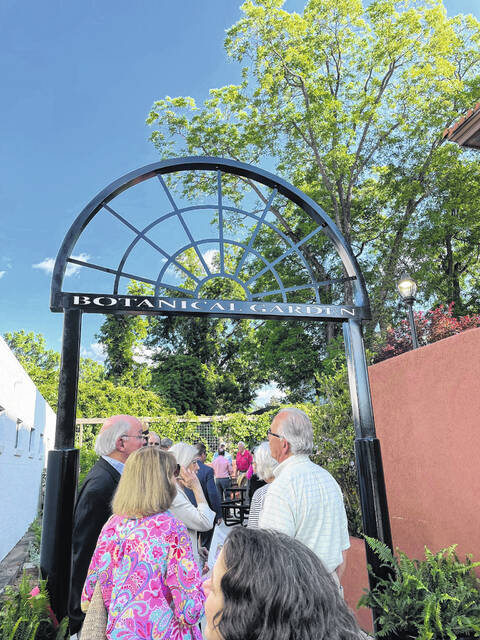NEWBERRY — Behind The Newberry Museum, sat a space that wasn’t being utilized to its full potential. Staff at the museum wanted to make the space more appealing to visitors while also incorporating exhibits in the museum.
Throughout the year, the museum does two special exhibits, the current exhibit being in partnership with the National Museum of Civil War Medicine called “The Toll of War.”
“It’s looking at Civil War medicines, psychology – how did they treat what we now know as PTSD, all of that type of stuff during the Civil War. We had the idea to turn this into a medicinal garden. Both sides are using today what we would call herbal medicine very heavily,” said Steven Knapp, executive director of The Newberry Museum.
The museum’s portion of the exhibit includes direct connections to Newberry County and Newberry College through the lives of local surgeons and the medical advances made by Dr. J. Julian Chisolm, whose service included time at Newberry College when the college was a hospital during the final days of the war.
The Nosegay Garden Club researched a lot of the plants that visitors will see in the garden. Partnering with the museum, the club looked into what and how the plants are used and how some of the plants are beginning to make a resurgence as medicines.
Some of the plants in the garden include foxglove, commonly used to treat heart ailments during the 19th Century. Foxglove was also used to treat what was called irritable heart syndrome. Knapp said today this would probably be called high stress reactions or even the early signs of post traumatic stress disorder (PTSD).
Although today it’s considered a weed, the garden also includes mullein. During the 19th Century, mullein was used for wiping wounds, treating hemorrhoids and sometimes placed into shoes as a cushion while marching.
“They would also smoke it because if dried and smoked, it would actually help open up the lungs so it would be used for things like asthma,” Knapp said.
Those with a green thumb will also see rabbit tobacco in the garden. Knapp said rabbit tobacco treated a number of ailments, but a lot of times would put into foods, essentially as a filler.
“A lot of these are starting to make a comeback because veterans that we have coming back from the Middle East have what I think has been called Middle East Syndrome right now, where basically they develop resistance to a lot of antibiotics so doctors are actually starting to go back and re-evaluate a lot of these herbal medicines, particularly willows bark as a possible alternative to antibiotics for these veterans,” he said.
“As part of that, an anonymous donor helped us obtain the picnic tables, a lot of the hardware that’s out here, the fountain – just to make it more appealing for visitors so we can actually do programs out here,” he said.
Knapp added they would like to use the garden to host programs about herbal medicine and looking into the future, tying the garden into future exhibits.
Reach Kelly Duncan at 803-276-3122 ext. 1867 or [email protected].




